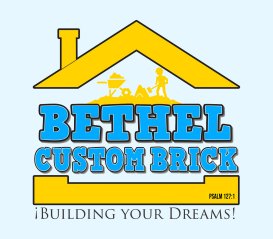Mortar is an essential component of any masonry chimney, acting as the binding agent that holds the bricks together. While bricks provide strength and durability, it’s the mortar that ensures the chimney’s structural integrity and resistance to external forces. Over time, mortar can deteriorate, jeopardizing the stability of your chimney. Understanding the role of mortar and its importance in chimney stability and repair is key to maintaining a safe and functional structure.
The Role of Mortar in Chimney Stability
1. Binding the Structure Together
- Mortar serves as the glue that binds bricks into a cohesive, stable structure. It provides the necessary flexibility to accommodate minor movements caused by temperature changes, wind, and settling.
- Without strong mortar joints, bricks can loosen or shift, leading to structural instability.
2. Sealing Against Moisture
- Mortar creates a seal between bricks, preventing water from entering the chimney. This is critical, as moisture can lead to freeze-thaw cycles, causing bricks to crack or spall.
- Properly maintained mortar joints protect the chimney from water damage, preserving its longevity.
3. Distributing Load Evenly
- A chimney relies on its mortar to evenly distribute weight across the structure. Damaged or missing mortar weakens this balance, increasing the risk of cracks, leaning, or even collapse.
4. Resisting External Forces
- Mortar helps the chimney withstand environmental factors such as wind, snow loads, and thermal expansion. A strong mortar bond ensures the chimney remains stable and functional under varying conditions.
Signs of Mortar Deterioration
Over time, mortar can erode, crack, or crumble due to weather exposure, aging, and poor maintenance. Here are common signs that your chimney’s mortar may need attention:
- 1. Cracks or Gaps in Mortar Joints: Visible cracks or gaps in the mortar are early warning signs of deterioration. These openings allow water to penetrate and accelerate damage.
- 2. Loose or Shifting Bricks: If bricks feel loose or are visibly shifting, it’s likely the mortar has lost its bond and needs repair.
- 3. Efflorescence: White, powdery residue on the chimney’s surface indicates water infiltration, which often results from compromised mortar.
- 4. Spalling Bricks: Spalling, or flaking bricks, often stems from moisture penetrating through deteriorated mortar joints.
- 5. Crumbled or Missing Mortar: Mortar that has crumbled or fallen out of the joints leaves the chimney vulnerable to structural issues.
Mortar Repairs: Ensuring Chimney Stability
1. Repointing
What It Is:
Repointing involves removing the damaged or deteriorated mortar and replacing it with fresh mortar. This process restores the structural integrity of the chimney and prevents moisture infiltration.
When to Use It:
Ideal for chimneys with minor to moderate mortar erosion or cracking.
2. Tuckpointing
What It Is:
Tuckpointing is a specialized technique that combines repairing mortar joints with enhancing the chimney’s appearance. Fresh mortar is applied, and grooves are created to mimic the look of traditional brickwork.
When to Use It:
Suitable for historical or decorative chimneys where aesthetics are a concern.
3. Sealing and Waterproofing
What It Is:
After mortar repairs, applying a waterproof sealant protects the chimney from future moisture damage.
When to Use It:
Recommended for all repaired chimneys, especially those exposed to heavy rainfall or freezing temperatures.
4. Partial or Full Chimney Rebuild
What It Is:
In cases of severe mortar and brick deterioration, rebuilding part or all of the chimney may be necessary.
When to Use It:
When the chimney is structurally compromised beyond repair.
4. Partial or Full Chimney Rebuild
What It Is:
In cases of severe mortar and brick deterioration, rebuilding part or all of the chimney may be necessary.
When to Use It:
When the chimney is structurally compromised beyond repair.
Preventing Mortar Deterioration
Proactive maintenance can extend the life of your chimney’s mortar and prevent costly repairs:
- 1. Schedule Regular Inspections: Annual chimney inspections help identify early signs of mortar deterioration, allowing for timely repairs.
- 2. Apply Waterproofing Treatments: Protect your chimney from moisture damage by applying a breathable waterproof sealant every few years.
- 3. Repair Cracks Immediately: Addressing small cracks or gaps in the mortar as soon as they appear prevents them from growing into larger issues.
- 4. Clean the Chimney Regularly: Regular cleaning removes debris, soot, and moisture, which can contribute to mortar damage over time.
Why Mortar Maintenance is Essential
The mortar in your chimney plays a vital role in maintaining the structure’s safety, stability, and longevity. By addressing mortar issues promptly and following a regular maintenance routine, you can ensure your chimney remains a functional and attractive part of your home.
Bethel Custom Brick – Expert Chimney Mortar Repairs in the Detroit Metro Area
At Bethel Custom Brick, we specialize in repairing and restoring masonry chimneys with expert attention to mortar joints. Serving the Detroit Metro area, our skilled team provides services such as repointing, tuckpointing, and full chimney rebuilds to ensure your chimney remains stable, safe, and weather-resistant. Contact us today to schedule a consultation and let us help you protect your chimney for years to come.


